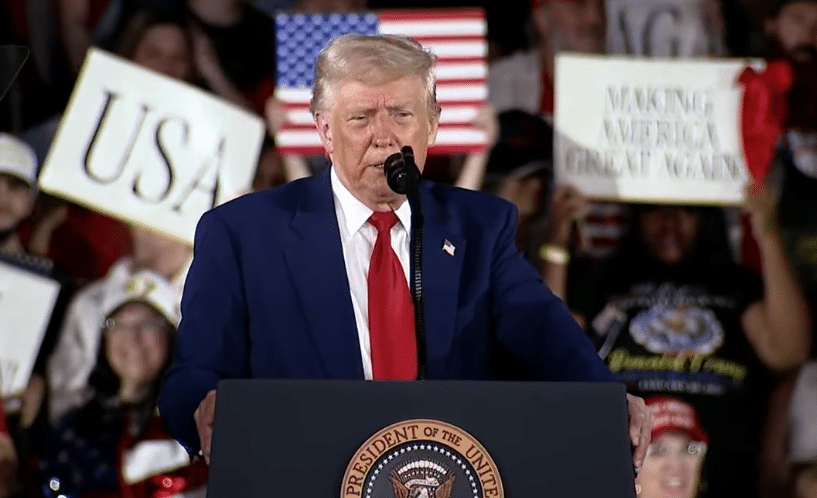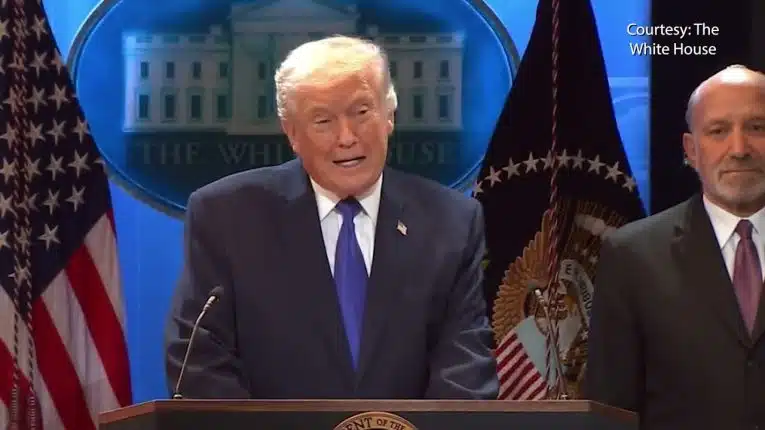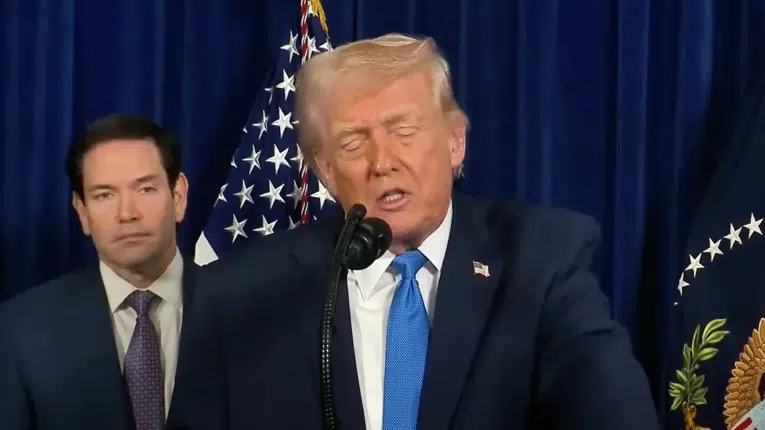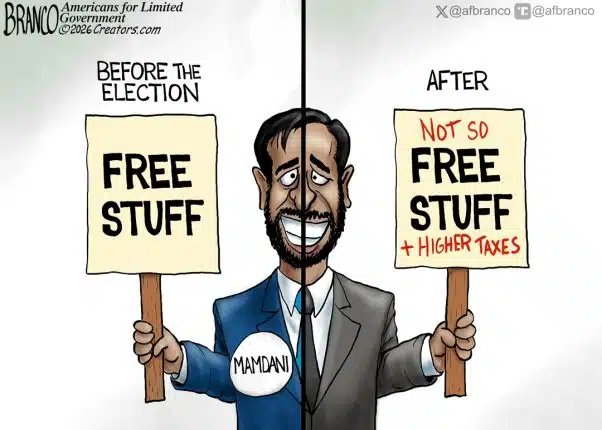
Senate Republicans are preparing new drafts of President Donald Trump’s One Big Beautiful Bill Act that makes the 2017 Trump tax cuts permanent, ends income taxes on tips and overtime, reduces taxes for seniors collecting Social Security and finishes the southern border wall as the legislation is subjected to the so-called Byrd rule that bars inclusion of items that have no budgetary effect from budget reconciliation and was made permanent in 1990 via 2 U.S.C. Sec. 644.
The law states in part, “a provision of a reconciliation bill or reconciliation resolution considered pursuant to section 641 of this title shall be considered extraneous if such provision does not produce a change in outlays or revenues, including changes in outlays and revenues brought about by changes in the terms and conditions under which outlays are made or revenues are required to be collected (but a provision in which outlay decreases or revenue increases exactly offset outlay increases or revenue decreases shall not be considered extraneous by virtue of this subparagraph)…”
As a result, in budget reconciliation bills, the Senate parliamentarian, Elizabeth MacDonough, wields extraordinary power to determine what stays in the bill and what goes.
So far, various items Congressional Republicans were banking on as pay-fors for the tax and border provisions have already been stripped from the bill. For example, proposed changes to Medicaid provider taxes used by states that would cap and reduce those taxes were deemed extraneous. It accounted for about $89 billion of the savings the bill was accounting for according to Kaiser Family Foundation, meaning Congress will have to find the savings elsewhere for Senate and House leaders to hit their numbers.
On one hand, the fall of the provision to parliamentary procedure might actually make the bill easier to pass for some members — this was by far the provision that Senate Republicans reluctant sign onto the bill were noisiest about — but on the other hand, harder for other members who are opposed to the impact on deficits posed by the legislation following a Congressional Budget Office estimate that the legislation would add $2.3 trillion to the deficit.
Besides the limits of what can be achieved with slender majorities and under budget reconciliation as a vehicle for legislation, this importantly is a reminder that the only two numbers that truly matter in the One Big Beautiful Bill Act from President Trump’s perspective are 50 and 217. That is, 50 votes in the Senate (plus Vice President J.D. Vance who would break a tie) and 217 votes in the House with the current 432 members.
In both chambers, Republicans have but three votes to spare with 220 member House Republicans and 53 Senate Republicans.
From voters’ perspectives, the so-called pay-fors might appear interchangeable, a means to an end to achieve the signature items that President Trump campaigned on — no taxes on tips, overtime and tax cuts for seniors plus the border wall — as he won the popular vote, Electoral College and swept House and Senate Republicans into majorities.
It’s a lot like the inner workings of plumbing when you get into the basement of a house. Most homeowners will be unaware of how it all works, and so they’ll hire a plumber when something goes wrong, but they expect when they turn on the faucet, clean water will come out. And when something goes wrong, the homeowner will be obliged to pay whatever it takes so that the basic expectation of running water is met.
And so it is with the One Big Beautiful Bill Act. That is, voters won’t care too much what it took to make the 2017 tax cuts permanent and to expand tax cuts to tips, overtime and seniors, and to finish the border wall and provide for boosted immigration enforcement. These are the popular provisions that Trump campaigned on, and what the American people are generally expecting from the legislation. They won’t be aware of every provision but they think it’s going to pass because it’s what they just voted for in November.
The alternative to the legislation, sadly, is a tax increase on 80 percent of Americans, no boosted border and immigration enforcement, the tax cuts on tips, overtime and seniors become non-existent, and state and local tax and mortgage deductions that members are fighting over now become unlimited. In short, none of President Trump’s legislative promises and objectives would have been achieved and the Republican Congress will have been a failure.
A failure, it must be noted, that would effectively disenfranchise the 77 million people who voted for President Trump and Republican majorities in the House and Senate.
So, Congressional leaders must negotiate in good faith and importantly do whatever it takes to reach at least 50 votes in the Senate and 217 votes in the House and at the end of the day, realize that it will never be perfect. Not everything was going to meet up with Senate budget rules or hit the two numbers that truly matter, 50 and 217 — but that’s okay. Do your best, keep President Trump’s signature promises, hit those numbers and voters will understand.
Robert Romano is the Executive Director of Americans for Limited Government.






